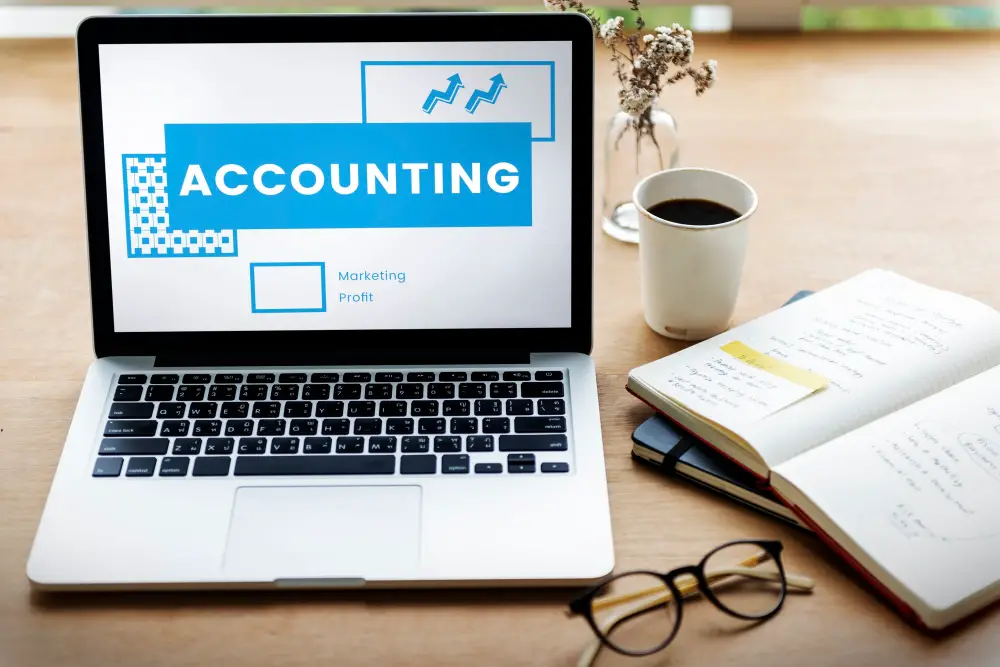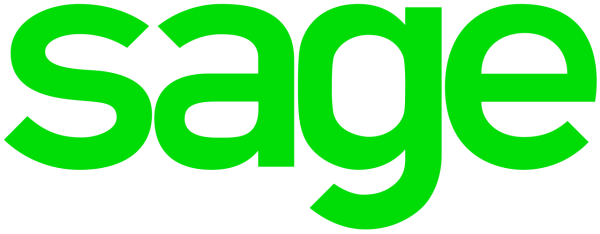Accounting software for your small business
We’re spoilt for choice when it comes to affordable accounting software options. And it’s easy to be bamboozled by the sheer number of options. Catchy jingles aside – how do you choose the best accounting software for your small business needs?
The final decision is essentially based on one thing: what do you need the software to do? Each small business has different requirements.
Just because someone else in your trade’s got the all-singing-all-dancing package, doesn’t mean you need it. On the other hand, you need to make sure that your accounting software has the capacity to grow with your business over time.
We’ve laid out some basics for you to think through. And there’s a summary of 5 cloud of the best accounting software products for small businesses to help start your search.

What is cloud based accounting software?
There’s still the option of getting desktop accounting software, but many small business owners opt for cloud based so that’s where our main focus is for this article. Here’s a brief summary of the differences between the two to help pick whichever’s right for you.
Desktop accounting software
Desktop accounting software is usually a single purchase of a perpetual licence. This means you’ve got unlimited access to the software with that one payment. It runs on your desktop and only integrates with the data on that computer. Desktop software isn’t reliant on an internet connection, but you can only access it on your desktop computer. You have ultimate control of your data because it’s not stored on a third-party cloud.

Cloud based accounting software
Cloud-based software means that your data and functionality is run and stored in a cloud. This means you need an internet connection to use it. You pay for cloud-based software by either monthly or annual subscription. This has become the most popular type of accounting software for a number of reasons:
- Your financial information is protected by in-built high security
- New features are regularly added in updates
- Potential to synch with your bank account and other business software
- You can access it from anywhere with an internet connection, on any device
Benefits of using cloud accounting software
You’re running tight ship as it is, and you’ve got a good accountant that sorts out year end stuff. You’ve already been looking into accounting software and there seems to be a lot of information to wade through to get to a decision. Plus, if you’re honest, you just don’t want another new thing to learn. That’s all the reasons to keep going as you are.
Here are some of the benefits you get by using accounting software, even though it is a time investment at the start.
Save time: No more blocking time to ‘do the books’, or filing receipts in date order. The flexibility of cloud-based accounting software means that you can do daily accounting tasks on the go.
For example: Buy some fuel – photograph the receipt and log it as an expense right there, before you leave the garage. Done.
Accurate and automatic records: Reduce human error risk. No more copy and paste between data sources. Full integration with your other business systems and your bank means that your records are more accurately curated and are used to create detailed insights about your financial health. Any data you input is collated in real time, automatically.
Reporting: The best small business accounting software provides you with reports on various aspects of your business’s financial health whenever you need them. This helps you make informed, confident business decisions. It will also be compatible with HMRC, so you can file any legally required reports straight from your account.
Integrations: Your accounting software needs to ‘talk to’ any other business software systems you use, like payment or HR.
Support: Of course something will go wrong at some point. You need to check what technical support is available when you sign up to any accounting software package. Some only have support as an extra that carries an additional fee.
Ask yourself, What book-keeping or accounting job annoys you the most? Invoicing? Chasing late payments? Reconciling transactions? Organising expenses? Make sure you choose accounting software that does this for you automatically. The final decision is based on your business needs, now and where you aim to be in the future.
5 top accounting software providers
These are 5 of the top accounting software options around at the moment. All of them have a proven track record over time and are established businesses.
This is a brief summary of their key features and main price packages, with links to a more detailed look at each one individually.
 Intuit QuickBooks
Intuit QuickBooks
QuickBooks as a lot of options when it comes to packages and their offers change regularly. Go straight to their website to see the latest deals. Sometimes there’s a free month’s trial on particular packages. The table that summarises the features of each package is a really useful decision making tool and you can initially sort them by sole trader or limited company – which reduces the number of options to a more manageable amount.
For example, a sole trader has 2 options:
- Self-employed package
This is for sole traders that aren’t registered for VAT and need to file self assessment. Even this basic plan lets you sendunlimitedinvoices, ‘snap and sort’ receipts and track mileage.
- Simple start package
This is for small businesses that are managing VAT and income tax.This packages includes things like submitting VAT and CIS to HMRC.
Again, the table comparing the two makes the available features really clear.
 Xero Accounting
Xero Accounting
Xero is “designed in the cloud, for the cloud” and is well known for its easy to use app.
Xero’s pricing packages are:
- 30 day free trial – all the features, no credit card required, no obligation.
- Starter: Up to 20 invoices and quote, up to 5 bills, no multiple currencies, no bulk reconciliations.
- Standard: Unlimited invoices and bills, bulk transaction reconciliation, no multiple currencies.
- Premium: Everything up to short term reports.
- Ultimate Everything in the Premium package plus payroll from 10 people, expenses and projects for up to 5 people and Analytics Plus.
Sometimes Xero has offers like 50% off the first 6 months.
The difference in features included in the package price is clear. And there’s a list of optional add-ons that you can choose from, each of which incur an extra charge. This pick and mix of additional features is good because it avoids having to pay for things you know your business doesn’t need.
But, on the other hand, the costs can start to mount up, depending on what you need from your accounting software. Particularly as a sole trader, the limits of Xero’s starter package may be too restrictive.
 Sage
Sage
Sage’s packages vary and sometimes offer a trial period so you can try things out for free:
- Accounting Start: This is designed for new sole traders and micro-businesses.
- Accounting Standard: Sage’s small businesses package, you get all of the Start features and some extras, like snap receipts, advanced reports and manage purchase invoices.
- Accounting Plus: Everything in the Standard package plus inventory management and multiple currencies.
Sage’s website has a useful table that compares their 3 packages, side-by-side – so it’s really clear what you’re getting at each stage. Sage has a lot of online support and a phone number, so you can speak to an actual real life human.
 FreshBooks
FreshBooks
FreshBooks is famously user-friendly to those of us who aren’t accountancy professionals. Its designed specifically to support small businesses.
They currently have a 90% off for 3 months deal available. Outside this, their pricing tiers are:
- 30 day free trial: No obligation, no credit card required.
- Lite: Invoice up to 5 clients, includes MTD VAT filing.
- Plus: Up to 50 clients.
- Premium: Unlimited clients.
- Select: Bespoke pricing for a personalised package.
As you can see, FreshBooks main differentiator is the number of billable clients you enter. For new and micro-businesses, the Lite package may be everything you need – and there’s always the opportunity to upgrade as you grow.
Their Plan Comparison Chart shows you exactly what features are included at each level. So you can go through and make sure your non-negotiables are in there.
FreshBooks has a multitude of online resources and a team of Support Specialists that you can call with any questions.
 FreeAgent
FreeAgent
FreeAgent has been ‘top business software’ awards since 2019 and it continues to impress.
FreeAgent costs are organised into different plans for different business types: Limited company, Partnerships and LLP, sole traders and a new landlords plan that you can register your interest in.
For example, if you’re a sole trader, your current pricing options are:
- 30 day free trial: No obligation to buy.
- Currently Free with your business current account at NatWest, Royal Bank of Scotland, Ulster Bank NI, or a Mettle business account. Freeagent remains free as long as you have your business account.
- Monthly: Depending on your business type with a free 30 day trial.
- Annual: Depending in your business type with a free 30 day trial.
FreeAgent’s features table shows exactly what you’ll get in each plan, with links to give more details on each element.
One note of caution is explained at the bottom of this table, “All the features indicated above for your business type will be included if you choose ‘Traditional (accruals) basis’ when you set up your FreeAgent account. If you choose ‘Cash basis’, your FreeAgent account won’t include Stock or Payroll features.”
Key Takeaways
These five big players in accounting software have all proved their reliability, offer similar features and are reasonably priced. Your job now is to dig into the fine print to see what’s the best option for your business needs.
At first, it might seem more economical to go for a cheaper package. But by the time you’ve factored in all the add ons, you’re typically better off with a more expensive package that includes your non negotiables.
Start with that list of what you really want your accounting software to do for you. What will save you time, stress and money?
You will have to invest some time into finding the best package at the best deal (and the offers can change regularly). But the streamlining effect of the right accounting software package will bring immediate benefits to your business life.






